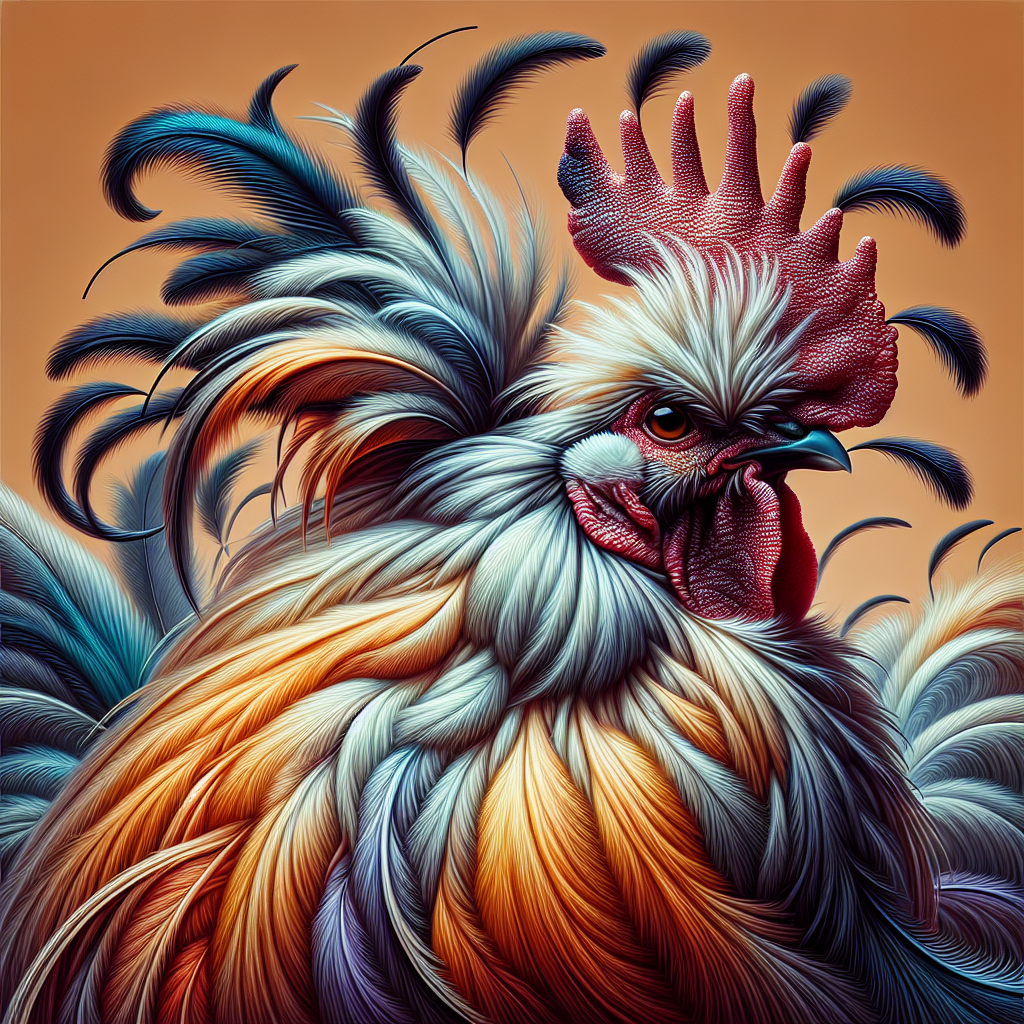Finding reliable sources or rankings can be quite a challenge, especially when it comes to comparing chicken breeds. With so many opinions and information available, it can be overwhelming to determine which sources are trustworthy and accurate. Fortunately, there are a few strategies you can employ to ensure that you are gathering the most reliable information to make informed decisions about the best chicken breed for you. From consulting experienced breeders and reputable agricultural organizations to reading reviews and attending poultry shows, this article will provide you with valuable tips on how to find reputable sources or rankings when comparing chicken breeds.
Understanding the importance of reputable sources
When researching information about chicken breeds, it is crucial to rely on reputable sources. Doing so ensures that the information you gather is accurate, reliable, and trustworthy. By using reputable sources, you can make well-informed decisions and avoid any potential negative consequences. Let’s explore why you need reputable sources, what makes a source reputable, and the consequences of relying on non-reputable sources.
Why do I need reputable sources?
Using reputable sources is crucial when comparing chicken breeds because it ensures the accuracy and reliability of the information you acquire. Reputable sources have a rigorous fact-checking process, ensuring that the information they provide is backed by research and expertise. By relying on reputable sources, you can avoid misinformation and make informed decisions about which chicken breeds will best meet your needs.
What makes a source reputable?
A reputable source is one that has a solid reputation in the field of poultry breeding and husbandry. These sources have established themselves as trusted authorities through their years of experience and dedication to providing accurate information. Reputable sources often have a strong foundation in scientific research, and their information is backed by experts in the field. Look for sources that have a history of providing reliable and comprehensive information about chicken breeds.
The consequences of relying on non-reputable sources
Relying on non-reputable sources can have significant consequences when comparing chicken breeds. Non-reputable sources may provide inaccurate or misleading information, leading to poor decision-making. By relying on such sources, you risk investing time, money, and effort into chicken breeds that do not meet your expectations or have the desired qualities. It is important to be discerning and seek information from reputable sources to ensure the best outcomes for your flock.
1. Researching Reputable Organizations
Reputable organizations dedicated to poultry breeding and husbandry can be invaluable sources of information when comparing chicken breeds. These organizations often conduct extensive research and have a wealth of knowledge on different breeds. Here are a few reputable organizations to consider:
American Poultry Association (APA)
The American Poultry Association (APA) is one of the oldest and most respected poultry organizations in the United States. They provide comprehensive information on various chicken breeds and their standards. The APA sets the standards for breed recognition and conducts regular assessments to ensure the authenticity of breed traits. Their website offers a wealth of information on different breeds and is a reliable source for breed characteristics.
American Bantam Association (ABA)
The American Bantam Association (ABA) focuses specifically on bantam chicken breeds. They maintain breed standards, provide educational resources, and promote the breeding and exhibition of bantam chickens. The ABA website offers valuable information on bantam breeds, including breed profiles and care guidelines. Their expertise in bantam breeds makes them a reputable source for information on these specific chicken breeds.
Poultry Club of Great Britain (PCGB)
The Poultry Club of Great Britain (PCGB) is a reputable organization for poultry enthusiasts in the United Kingdom. They offer a wealth of information on different chicken breeds, including breed standards and care guidelines. The PCGB organizes poultry shows, exhibitions, and breed assessments to ensure the breeding standards are maintained. Their website is a valuable resource for anyone interested in learning about chicken breeds in the UK.
2. Consulting Government and University Websites
Government and university websites are excellent sources of reliable and up-to-date information on chicken breeds. Here are a few reputable websites to consider:
United States Department of Agriculture (USDA)
The United States Department of Agriculture (USDA) provides extensive information on various aspects of poultry production. Their website offers resources on different chicken breeds, including breed information, management practices, and disease prevention. The USDA’s expertise in agriculture and poultry makes their website a reputable source of information for both novice and experienced chicken keepers.
The Livestock Conservancy
The Livestock Conservancy is an organization dedicated to the preservation of rare and endangered livestock breeds, including chicken breeds. Their website offers information on various heritage chicken breeds, including breed descriptions, history, and conservation efforts. The Livestock Conservancy’s focus on preserving heritage breeds makes them a reputable source for information on these specific chicken breeds.
Agricultural colleges and universities
Many agricultural colleges and universities have websites or publications that provide valuable information on poultry breeds. These institutions conduct research, offer educational programs, and provide resources for poultry enthusiasts. The websites of agricultural colleges and universities often contain in-depth information on various chicken breeds, including breed characteristics, management practices, and breeding guidelines. Consulting these sources can provide you with credible and well-researched information.
3. Utilizing Poultry Breed Associations
Poultry breed associations are organizations dedicated to specific chicken breeds or groups of breeds. They are a valuable resource for information, networking opportunities, and breed-specific expertise. Here are a couple of ways to utilize poultry breed associations when researching chicken breeds:
Chicken Breeders Associations
Chicken breeders associations are organizations that focus on specific breeds of chickens. These associations bring together experienced breeders who have in-depth knowledge about their chosen breed. They often have websites and forums that provide detailed information on breed characteristics, standards, and breeding guidelines. Engaging with these associations can give you access to valuable insights and advice from experienced breeders.
Poultry Exhibitions and Fairs
Poultry exhibitions and fairs are events where chicken breeders and enthusiasts showcase their breeds and compete for prizes. These events offer an excellent opportunity to see different chicken breeds up close, learn about their characteristics, and interact with breeders and judges. Attending poultry exhibitions and fairs allows you to gather firsthand knowledge about different breeds and make connections with experienced poultry breeders.
4. Engaging with Online Communities and Forums
Online communities and forums dedicated to chicken keeping are a valuable source of information and support. Here are a few online platforms to consider:
Chicken-focused online forums
Chicken-focused online forums provide a platform for chicken keepers to ask questions, share experiences, and exchange information. These forums often have sections dedicated to specific breeds, where you can find discussions and insights from breed enthusiasts and experienced keepers. Engaging with these forums allows you to tap into a wealth of knowledge and connect with other chicken enthusiasts.
Social media groups for poultry enthusiasts
Social media platforms like Facebook and Instagram have groups dedicated to poultry enthusiasts. These groups offer a space for members to share photos, ask questions, and discuss various aspects of chicken keeping. Joining these groups can provide you with a community of like-minded individuals who can offer advice and share their experiences with different chicken breeds.
Online chicken keeping communities
There are online communities and websites specifically focused on chicken keeping. These platforms offer a wealth of information on chicken breeds, care, and management. They often have articles, guides, and resources written by experienced chicken keepers and poultry experts. Exploring these online communities can give you access to a wide range of information and connect you with knowledgeable chicken keepers.
5. Reading Books and Guides on Chicken Breeds
Books and guides on chicken breeds are an excellent resource for in-depth information. Here are a few types of literature to consider:
Authoritative books on poultry breeds
There are numerous authoritative books written by experienced poultry breeders and experts. These books offer comprehensive information on different chicken breeds, including breed characteristics, history, breed standards, and practical advice. Investing in reputable books written by experts can provide you with a wealth of knowledge and serve as a reliable reference throughout your chicken-keeping journey.
Comprehensive breed guides
Comprehensive breed guides focus on specific chicken breeds or groups of breeds. These guides often include detailed descriptions, photographs, breed profiles, and care guidelines. They can be a valuable resource for identifying and comparing different chicken breeds based on your specific needs and preferences. Comprehensive breed guides allow you to gather insights and make informed decisions about which breeds will best suit your flock.
6. Attending Poultry Shows and Exhibitions
Attending poultry shows and exhibitions is not only an enjoyable experience but also an opportunity to learn about various chicken breeds. Here are a couple of types of shows and exhibitions to consider:
National and international poultry shows
National and international poultry shows bring together chicken breeders, enthusiasts, and judges from around the world. These shows showcase a wide variety of chicken breeds, allowing you to observe them in person and interact with breeders. Attending national and international poultry shows gives you the chance to see rare and exotic breeds, learn about their characteristics, and gain insights from experienced breeders.
Local exhibitions and fairs
Local exhibitions and fairs offer a smaller-scale but equally valuable opportunity to learn about chicken breeds. These events often feature local breeders and enthusiasts showcasing their breeds and sharing their knowledge. Local exhibitions and fairs provide a more accessible platform for observing different chicken breeds, speaking with breeders, and discovering breeds that are popular or well-suited to your area.
7. Consulting Experienced Poultry Breeders
Experienced poultry breeders are a valuable source of information when comparing chicken breeds. Their years of hands-on experience and expertise can provide unique insights and practical advice. Here are a few ways to consult experienced breeders:
- Attend poultry shows and exhibitions and speak directly with breeders about specific breeds.
- Reach out to local breeders and schedule visits to their farms or facilities to observe their breeds and ask questions.
- Participate in workshops or training programs organized by experienced breeders, where you can learn about different breeds and their characteristics.
Consulting experienced poultry breeders offers the advantage of personalized advice based on their firsthand knowledge, enabling you to gain insights that may not be readily available through other sources.
8. Conducting Online Research
Conducting online research is a convenient way to gather information about chicken breeds. Here are a few tips to ensure effective online research:
Utilizing search engines effectively
When using search engines, start with specific keywords related to the breed or topic you are interested in. Use quotation marks to search for exact phrases or names. Consider using different combinations of keywords to obtain a broader range of results. Utilizing search engines effectively helps you find relevant and accurate information on chicken breeds from reputable sources.
Evaluating website credibility
While conducting online research, it is important to evaluate the credibility of the websites you visit. Look for websites that are run by reputable organizations, universities, or government agencies. Check for author credentials, publication dates, and references to ensure the information is up-to-date and supported by reliable sources. Avoid websites that appear biased, lack proper citations, or promote unverified claims.
Cross-referencing information
Cross-referencing information is essential when conducting online research. Compare the information you find across multiple reputable sources to ensure consistency and accuracy. If you come across conflicting information, dig deeper to verify the credibility and reliability of the sources. Cross-referencing helps you build a more comprehensive understanding of different chicken breeds and avoid potential misinformation.
10. Considering Personal Recommendations
Personal recommendations can be an excellent source of insights and advice when comparing chicken breeds. Here are a couple of ways to consider personal recommendations:
Word-of-mouth recommendations
Ask fellow chicken keepers, breeders, or enthusiasts for their recommendations on specific chicken breeds. They may have firsthand experience with a particular breed and can provide valuable insights on its temperament, egg production, or any other desired qualities. Word-of-mouth recommendations allow you to tap into the knowledge and experiences of others in the chicken-keeping community.
Seeking advice from local breeders
Local breeders in your area are familiar with the challenges and advantages of keeping chicken breeds specific to your region. They can offer guidance on breeds that are well-suited to your climate, predator concerns, or local regulations. Reach out to local breeders and ask for their recommendations based on your specific circumstances. Seeking advice from local breeders ensures that you are considering breeds that are more likely to thrive in your environment.
In conclusion, finding reputable sources when comparing chicken breeds is vital to ensure accurate and reliable information. By utilizing organizations, government and university websites, poultry breed associations, online communities, books and guides, attending shows and exhibitions, consulting experienced breeders, conducting online research effectively, and considering personal recommendations, you can gather comprehensive and trustworthy information to make informed decisions about the chicken breeds that best fit your needs. Remember to cross-reference information and seek credible sources to ensure the accuracy and reliability of the information you gather. With the help of reputable sources, you can embark on your chicken-keeping journey with confidence and give your flock the care they deserve.




